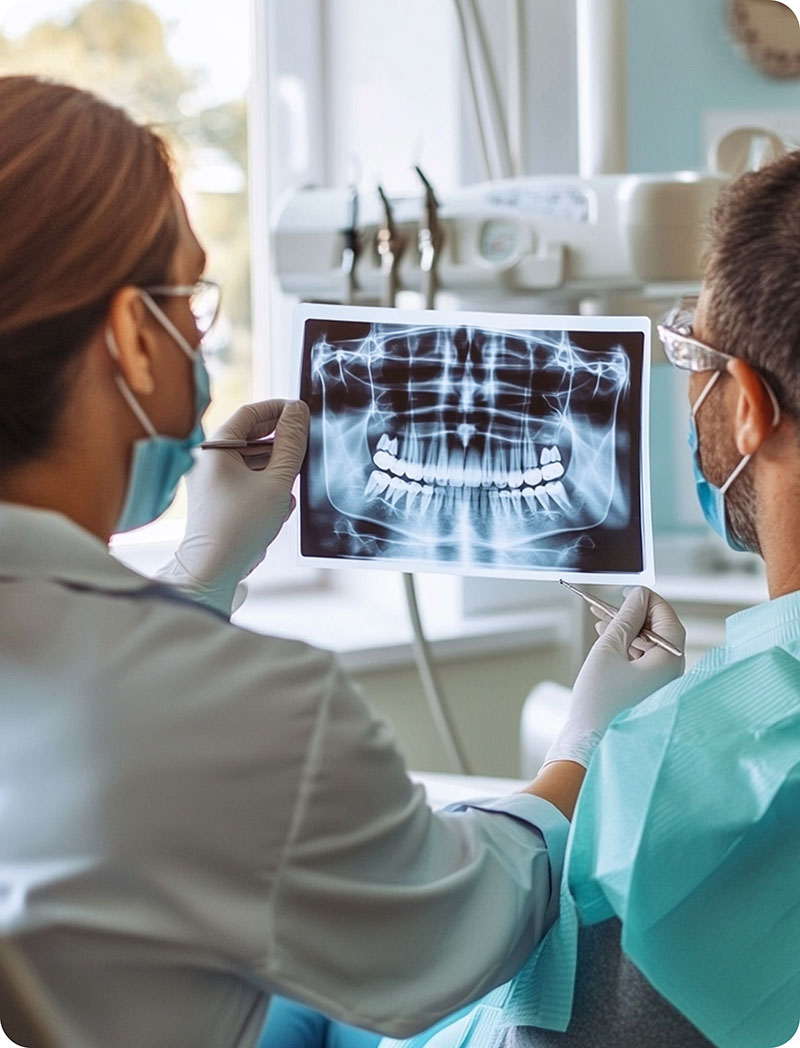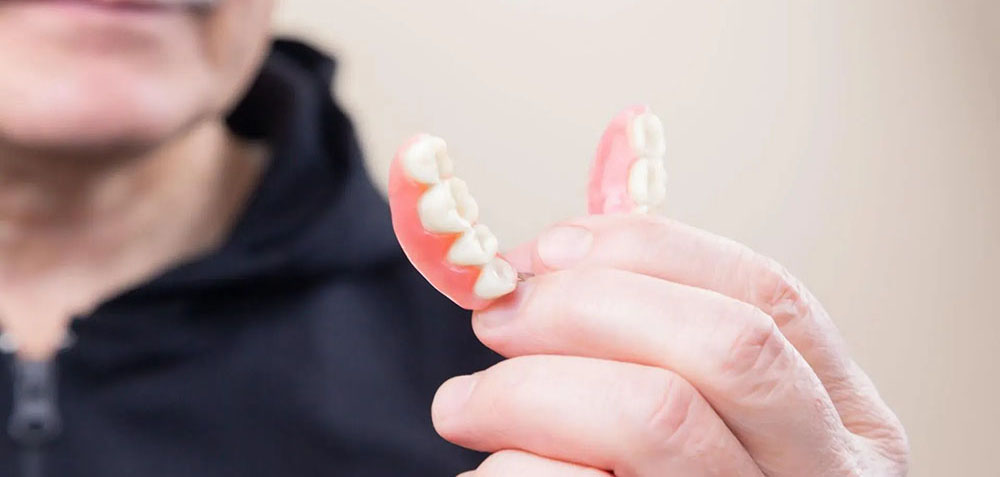Replace Missing Teeth
Dental implants are artificial tooth roots surgically placed into the jaw to replace missing teeth. Unlike bridges or dentures, implants offer a long-term, permanent solution.
If you're missing all upper or lower teeth, two options are:
A fixed, non-removable full bridge secured by four implants.
Removable dentures that snap onto implants for stability.
Implants are often placed in under an hour. Initial gum discomfort typically subsides in 3–4 days, while the jawbone takes 3–6 months to heal before a permanent crown is added.
If you need a tooth extracted, it's ideal to replace it with an implant immediately to avoid bone loss and facial collapse. Delaying may lead to the need for bone grafting, which adds bone to support the implant. Prompt placement avoids multiple healing phases and preserves jaw structure.

The Pros and Cons of Tooth Replacement Options
As dentistry advances, so do the options, methods, and techniques used to replace missing teeth. Luckily for you, we offer many different tooth replacement options and will recommend one of these options to you based on your desired outcome and budget. Not everyone is a viable candidate for each option though, so, we can discuss which tooth replacement option is best for you during your free initial consultation.
Traditional Dentures
Pros:
Cons:
Snap-In Dentures
Pros:
Cons:
Fixed Full Arch
Pros:
Cons:

What To Expect From Dental Implants
Dental implants typically require two appointments. First, the implant posts are surgically placed into the jawbone. After 3–6 months of healing, you'll return for the placement of your final restoration.
Implants are ideal for replacing missing teeth, but not everyone is an immediate candidate. After tooth loss, the jawbone begins to recede due to lack of support. If too much bone is lost, a bone graft or sinus lift may be needed to restore support for the implant.
Choosing a skilled provider is essential. Our dentist has advanced training and experience in placing secure, long-lasting implants. From surgery to final restoration, we deliver safe, expert care all in one place—so you can confidently rebuild your smile.
The Top Five Factors That Affect Dental Implant Costs
There is no doubt that dental implants are the best solution for replacing missing teeth. They also offer a number of long-term oral health benefits. However, many patients believe that the cost of dental implants precludes them from undergoing treatment. Here are the top six factors that affect dental implant costs:

The number of teeth that need to be replaced will affect your total cost of treatment. While we do not need to replace every missing tooth with a dental implant, we do need to place a sufficient number of implants to securely hold your restoration in place.
Prior to undergoing dental implant surgery, patients must have healthy teeth and gums. If a patients remaining natural teeth require treatment for cavities, root canal therapy, or a dental extraction, this will increase the total cost of treatment. Periodontal care can also affect the cost. In addition, patients should have a sufficient amount of jawbone to support their new dental implants. If not, we may recommend a bone graft or sinus lift procedure, which will also increase the cost.
The choice of surgeon, and location of the dental practice, always affects the price of dental implant treatment. We are committed to keeping treatment as affordable as possible for our patients.
The number of missing teeth you have will play a role in the type of restoration that is attached to your dental implant(s). For example, if you are missing a single tooth, we can use a dental crown to fill in the empty space. A single crown is the least expensive restoration option. However, if you are missing a span of teeth in one area of your mouth, we can attach a dental bridge to your dental implant(s). This is a moderately-priced restoration option. And, if you are missing a full arch of teeth (either upper or lower), we can place implant-supported dentures. Dentures are fabricated to replace a full arch of missing teeth, and they tend to be the most expensive option. The quality of your restoration also affects the cost of treatment, as is the case with the use of high-quality porcelain or zirconia. Our goal is to provide the best solution for you.
Patients may undergo dental implant surgery while under local anesthetic, which is the most affordable option. Intravenous sedation (sleep dentistry) is another option that can increase the cost of treatment.





